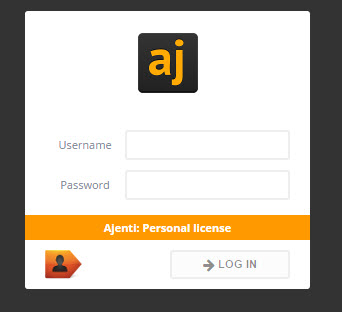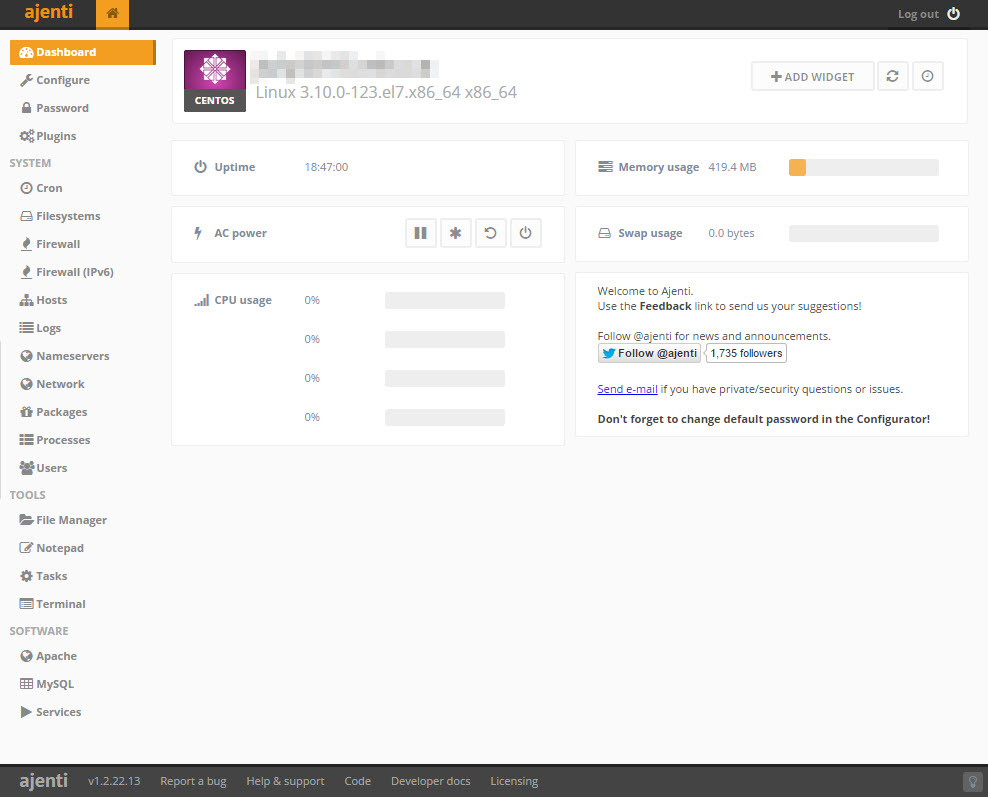Simple instructions on how to install Ajenti on CentOS 7 or RHEL7.
Ajenti is based on python and it requires EPEL repositories, so we'll need to start by adding those onto our server first:
yum install epel-release
Now update yum:
yum update
Add repository key:
wget http://repo.ajenti.org/ajenti-repo-1.0-1.noarch.rpm
rpm -i ajenti-repo-1.0-1.noarch.rpm
Next step is to install Ajenti package:
yum install ajenti
And once this is done, we can start the service:
service ajenti restart
At this point you should be able to load it and connect with the default Ajenti port 8000 by going to: https://IP_ADDRESS:8000
This is what you should see now:
Login with the default username is root, and the password is admin.
Once done, you'll see following screen and you've successfully completed installation of Ajenti:
If the page doesn’t load, it’s possible your CentOS 7 / RHEL 7 system has enabled FirewallD and you need to create a permanent exception for port 8080. Do this:
firewall-cmd --add-port=8000/tcp --permanent
Now restart FirewallD service and see if the page loads:
systemctl restart firewalld

